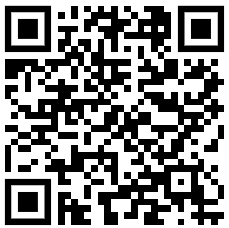Hello to all my fellow quarantined families! I hope that this blog post finds you healthy, happy, and filled with patience (or self-forgiveness for not being patient). Remember- we are all just humans doing the best we can.
On another note, this week’s blog goes out to the parents who have had to convince their child that no one made a mistake when they were identified as gifted- the psychologist didn’t give them only easy questions or accidently score the test incorrectly. They did not trick anyone or fake their way into the gifted program. If they had- they would have been mastermind prodigies, which would be very gifted in itself…
If this is a conversation you have had (or think you should have had), what your child may be experiencing is actually common among intellectual people who doubt themselves. It is a phenomenon called- “imposter syndrome”.
The American Psychological Association describes people with imposter syndrome as, “those who attribute their accomplishments to luck rather than ability, and fears others will eventually unmask them as a fraud.” Imposter syndrome typically goes hand in hand with perfectionism and is characterized by intellectual self-doubt, anxiety, and depression.
So- here we have our amazing gifted students, who despite meeting generally the same qualifications for gifted placement feel like they don’t belong with their peers. Why do they feel like imposters?
Well- there might be a few reasons. For one, a common characteristic of giftedness is feeling different from others, they tend to overanalyze their place in home, school, social situations, etc. Another culprit is the tendency for gifted kids to struggle with perfectionism and feeling inadequate if they are not doing everything “right”.
However, it seems that the biggest contributor to imposter syndrome in gifted kids are the common misconceptions of what giftedness looks like. When parents, teachers, and peers believe these misconceptions or myths of giftedness, it can make some students feel like frauds. The National Association of Gifted Children report that common misconceptions/myths about giftedness include the idea that gifted students do not need help-they are fine on their own (intrinsically driven), that they are generally well behaved and make good class tutors/mentors, they always get As, and they are gifted in all areas. Oftentimes, people assume that gifted students will be naturally talented in and love Math and Science or will read many levels above their same age peers or will thrive with extra projects and work.
Yes- there are some gifted students who meet the criteria of all these misconceptions, but so many others don’t. These could become the kids who stop enjoying school, question where they belong, and underestimate the unique talents they possess.
If your child is one of those who has expressed their concern over the validity of their gifted test- look up imposter syndrome together. Almost every student I have discussed this with has been flabbergasted that there is actually a name for how they have been feeling.
Some other tips that can help are:
Look up “famous failures” and read about people like Walt Disney and Albert Einstein who didn’t seem “gifted” to others.
Remind your child of interesting things they did when they were little that indicated their unique talents.
Discuss and work against perfectionism daily- make it a conscious effort.
Educate nay-sayers, help inform those who have drastic misconceptions of what giftedness looks like.
Most importantly, I want to wrap this post up with the reminder that your child is more than a label, they are more than an IQ/FSA/GPA/SAT score, they are valued more than their numbers of followers/likes/friends on social media, and they-above all else- need love, kindness, and forgiveness.
I wish you all the best! Erin Arnold


